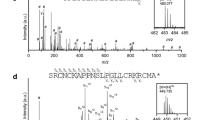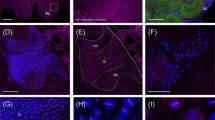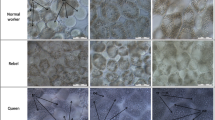Abstract
THREE years ago, Dr. Ronnie suggested to me that as a part of the research on acarine disease of the honey bee, I should attempt to describe certain pathological appearances in the indirect muscles of the wings, since visible pathological conditions of these muscles are often, but not invariably, associated with acarine disease. The results of the investigation will be published in two parts shortly, and this letter contains the announcement of some of the main conclusions with a plea to biochemists to study these particular muscles of the bee in detail, since they seem to lead to an exceptionally clear path to the cause of contraction of muscle.
This is a preview of subscription content, access via your institution
Access options
Subscribe to this journal
Receive 51 print issues and online access
$199.00 per year
only $3.90 per issue
Buy this article
- Purchase on Springer Link
- Instant access to full article PDF
Prices may be subject to local taxes which are calculated during checkout
Similar content being viewed by others
Author information
Authors and Affiliations
Rights and permissions
About this article
Cite this article
MORISON, G. Acarine Disease and the Muscles of the Honey Bee. Nature 120, 259–260 (1927). https://doi.org/10.1038/120259b0
Issue Date:
DOI: https://doi.org/10.1038/120259b0
Comments
By submitting a comment you agree to abide by our Terms and Community Guidelines. If you find something abusive or that does not comply with our terms or guidelines please flag it as inappropriate.



